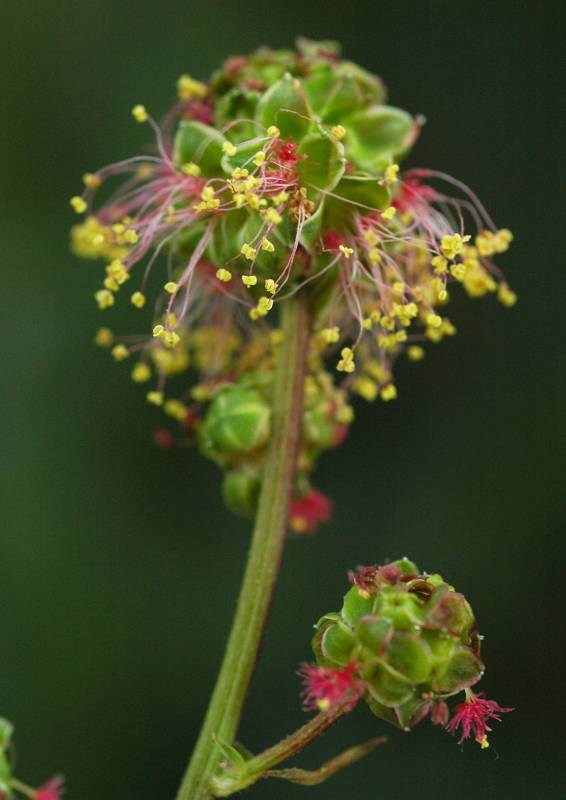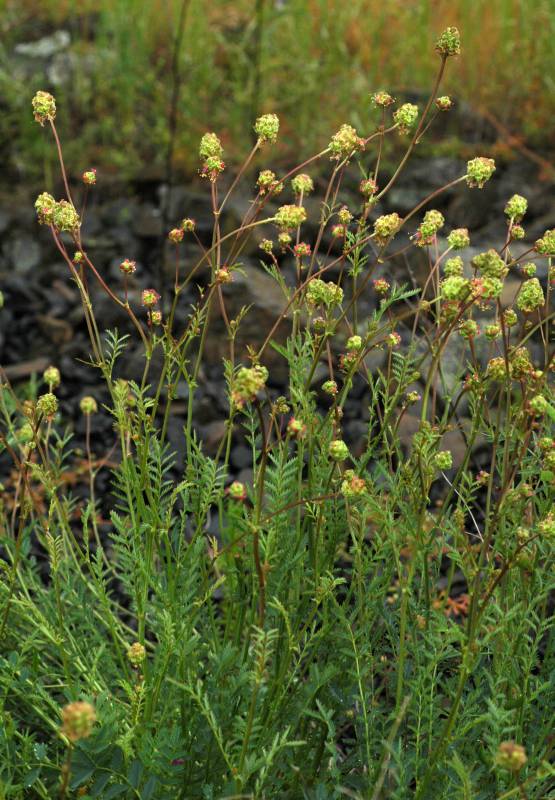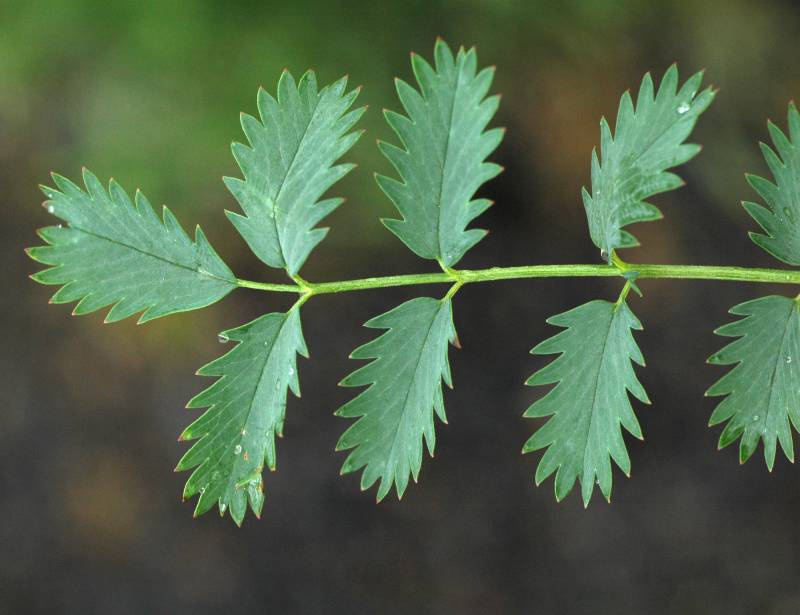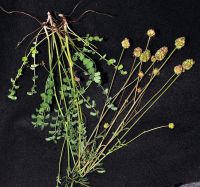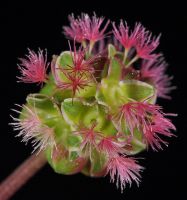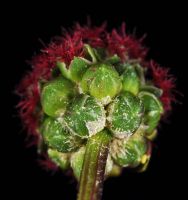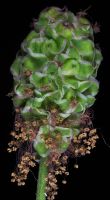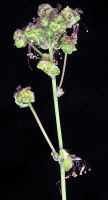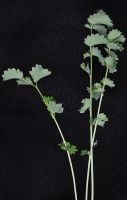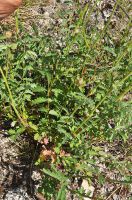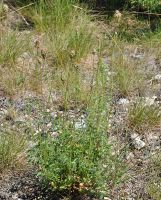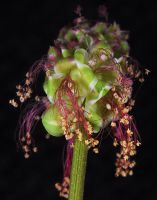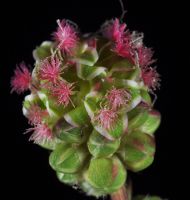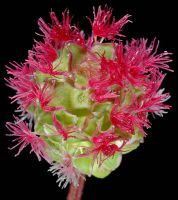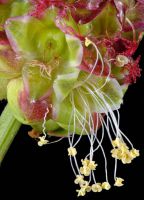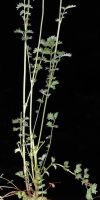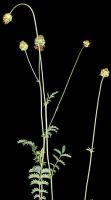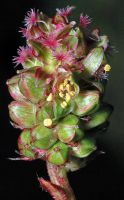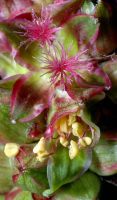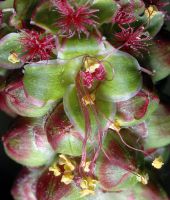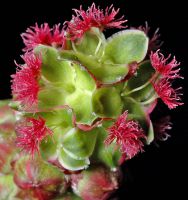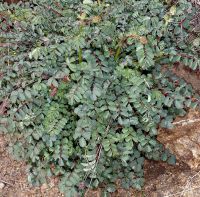Distribution: Occurring chiefly west of the Cascades crest and in the Columbia River Gorge in Washington; southern British Columbia to California, east to the Great Plains, also in eastern North America.
Habitat: Roadsides, shores, pastures, wastelots, and other disturbed open areas.
Flowers: June-August
Origin: Introduced from Eurasia and North Africa
Growth Duration: Perennial
Conservation Status: Not of concern
Herbaceous perennial from a branched, woody base, the flowering, leafy stems 2-6 dm. tall.
Basal leaves several, pinnate, the leaflets 9-17, oval, 1-2 cm. long, coarsely serrate; cauline leaves reduced but with leaf-like stipules.
Inflorescence of ovoid, dense spikes on long peduncles, 8-20 mm. long, each flower subtended by a papery, ovate bract and 2 lateral bractlets; flowers mostly imperfect, the lower ones staminate, the upper ones pistillate; calyx urn-shaped, greenish to rose-tinged, the 4 lobes broad, spreading and petal-like; petals none; stamens about 12, pistils 2.
Fruiting calyx 4-5 mm. long, woody and warty.
Publication: Sp. Pl. 2: 994. 1753.
-
var. polygamum – burnet bloodwort, fodder burnet, small burnet
 Occurring chiefly west of the Cascades crest and in the Columbia River Gorge in Washington; southern British Columbia to California, east to the Great Plains, also in eastern North America.
Occurring chiefly west of the Cascades crest and in the Columbia River Gorge in Washington; southern British Columbia to California, east to the Great Plains, also in eastern North America.
PNW Herbaria: Specimen records of Poterium sanguisorba in the Consortium of Pacific Northwest Herbaria database
WA Flora Checklist: Poterium sanguisorba checklist entry
OregonFlora: Poterium sanguisorba information
E-Flora BC: Poterium sanguisorba atlas page
CalPhotos: Poterium sanguisorba photos

